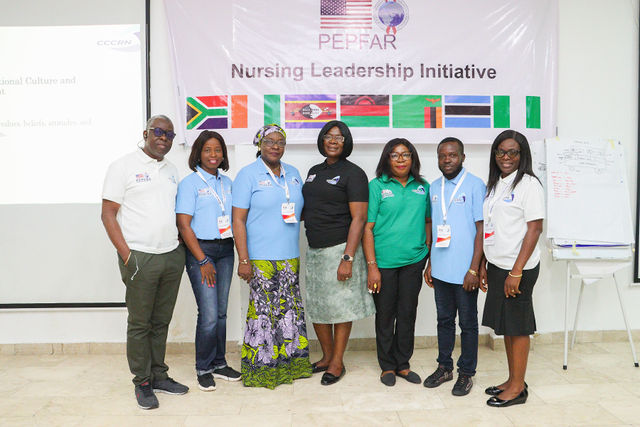Course Categories
Discover the most in-demand skills and topics in our popular categories. Browse our top courses and start learning
ABOUT NURSING LEADERSHIP INITIATIVE (NLI)
On March 25, Ambassador Dr. John Nkengasong – U.S. Global AIDS Coordinator and Senior Bureau Official for Global Health Security and Diplomacy, overseeing the Department’s Bureau of Global Health Security and Diplomacy – will launch the U.S. President’s Emergency Plan for AIDS Relief (PEPFAR) Nursing Leadership Initiative to sustain gains and accelerate progress toward ending HIV/AIDS as a public health threat by 2030. Under the initiative, PEPFAR is providing $8 million in 2024 to support nurses at the forefront of the HIV/AIDS response in Botswana, Côte d’Ivoire, Eswatini, Malawi, Nigeria, South Africa, and Zambia.
In these seven partner countries, the initiative invests in activities that will:
-
Enhance nurses’ skillsets to lead planning and delivery of HIV/AIDS services to curb disruptions in access to essential HIV services;
-
Help nurses to identify, advocate for, and leverage innovative digital solutions to enhance quality HIV service delivery;
-
Protect nurses by enhancing their infection prevention and control skills, providing supportive work environments, and supporting mental health needs;
-
Invest in the development, retention, and equitable distribution of the nursing workforce, aligned with each country’s national priorities, to ensure long-term sustainability of HIV service delivery; and
-
Enhance nurses’ communication and leadership skillsets.
PEPFAR implementing partners will also support partner nursing organizations in the seven initiative countries to undertake a needs assessment to guide initiative activities.

Implementing Countries
We are pleased to work with multiple countries. Those who work with us globally include

SOUTH AFRICA

NIGERIA

COTE D'IVOIRE

BOTSWANA

SOUTH AFRICA

NIGERIA

COTE D'IVOIRE

BOTSWANA

BOTSWANA
NLI COURSES
1. Nursing Leadership and Management are essential components of a well-functioning healthcare organization. Effective leaders and managers ensure the delivery of high-quality patient care, optimize resource allocation, and create a positive work environment for nurses.
2. Research in Nursing plays a crucial role in advancing the field and improving patient outcomes. Nurses engage in various types of research to explore new knowledge, evaluate existing practices, and develop evidence-based interventions.
3. Communication and Advocacy are essential skills for nurses to effectively advocate for their patients, their profession, and the healthcare system as a whole. Effective communication allows nurses to build relationships with patients, families, and healthcare providers, while advocacy empowers nurses to advocate for the best possible care for their patients
4. Mental health is a significant issue within the nursing profession, with nurses facing unique stressors that can impact their well-being. It is essential for nursing organizations and individuals to prioritize mental health support and resources for nurses.
5. Infection Prevention and Control (IPC) is a fundamental aspect of nursing practice, aimed at minimizing the transmission of infectious diseases among patients, healthcare workers, and visitors. Nurses play a crucial role in implementing and enforcing IPC measures to ensure a safe and healthy healthcare environment.











